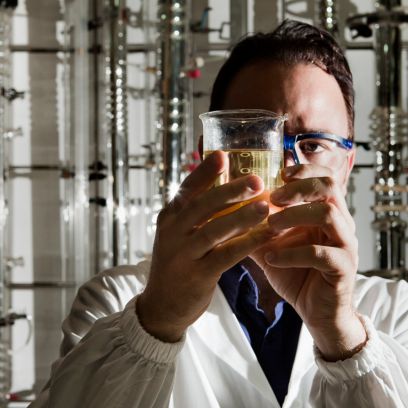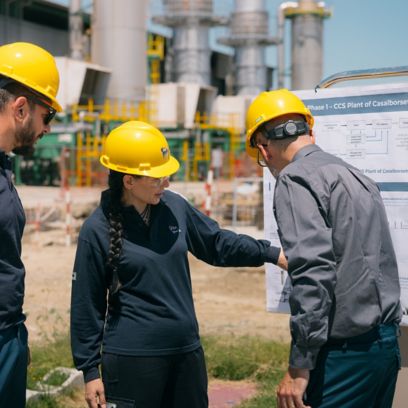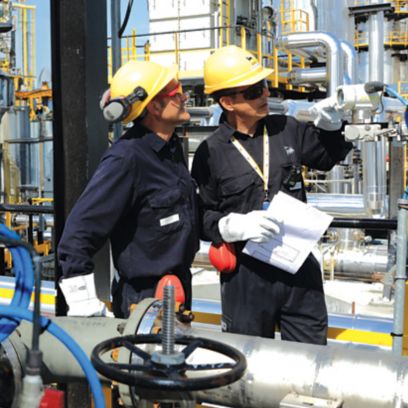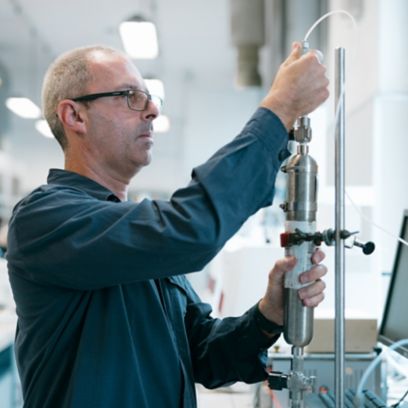Type of activity
Bioenergy
Biorefining
Environmental remediation
Chemistry
Energy from renewables
Carbon management
Oil & Gas
Mobility
Refining

In Italy we operate in all areas of the energy industry, from the extraction of natural resources to refining, biorefining, CO₂ capture and storage, chemistry, from technological research to the sale of our products and services. With Plenitude we develop and sell energy solutions from renewable sources and with Enilive (Eni Sustainable Mobility) we devise sustainable mobility solutions to reduce the environmental and energy impact. We strengthen our cooperation with Italian and international universities and research centres, supported by the Green Data Centre in Ferrera Erbognone, where HPC6, one of the most powerful supercomputers in the world, is based.
We contribute to the country's energy security, also by diversifying supply sources, and promote the evolution of the industrial sector based on the circular economy model. In line with our decarbonization targets, we are implementing a transformation strategy based on efficiency, digitalization, business integration and the use of new technologies, in line with the goals of the National Integrated Energy and Climate Plan and national and international regulatory standards.
Activity start date: 1926 – present
We have seized the potential of developing projects for capturing and sequestering CO₂ in depleted gas fields also through partnerships with leading companies. Thanks to Snam we have launched the Ravenna CCS Project for the development of the first CO2 capture and storage hub in Italy, while a three-year agreement with ENEA (the National agency for new technologies, energy and sustainable economic development) sees us at the forefront of the study and development of projects that include several areas, including the valorisation of waste to produce biogas and biomethane.
The expansion of our portfolio in the country for the production and sale of renewable energy continues with Plenitude. We have launched a major project for the expansion of photovoltaics and signed agreements for the development of new offshore floating wind projects.
Two former traditional refineries in Venice and Gela are now bio-refineries and have not been using palm oil since the end of 2022. Following their models, we are also planning to convert Livorno into a bio-refinery. In Gela, a plant is in operation that will make it possible to use up to 100% biomass not in competition with the food cycle. We have signed agreements to develop a local agro-industrial chain geared to the regeneration of marginal land and the development of sustainable agricultural practices. The aim is to produce oilseeds and bio-oil from the organic fraction of municipal solid waste.
At Gela we produce Sustainable Aviation Fuel (SAF), while in Venice we are awaiting approval to begin plant modification works.
With Enilive we offer a wide range of services for the decarbonization of transport. We produce high-performance biofuels that can be used in the aviation and airport sector with the supply of SAF, sustainable alternative aviation fuels and hydrogenated biofuel HVO (Hydrotreated Vegetable Oil). We have launched HVOlution, the first diesel produced from 100% renewable raw materials. We have also inaugurated the first plant that supplies hydrogen for road mobility in Venezia Mestre.
We conduct technological research, also in collaboration with the country's top universities and research institutes, in eight centres across the country. The Ferrara Erbognone Green Data Centre, which houses Eni's central IT systems, hosts HPC6, the most powerful supercomputer in Europe, the fifth in the world and one of the most energy-efficient. The centre is powered by a photovoltaic plant that uses the group's industrial land to generate energy from renewable sources.
Eni - Ente Nazionale Idrocarburi (National Hydrocarbons Agency) - was founded in 1953 to continue the research and development activities started by Agip in 1926. Oil and natural gas production is carried out in the Adriatic and Ionian Sea, in the Central-Southern Apennines and in Sicily through the Argo Cassiopea project. The refining system consists of three refineries, Sannazzaro, Livorno and Taranto, plus the Milazzo refinery, in which Eni holds a 50% interest. Each of them has its own operational and strategic profile.
Visit the special feature and discover the book that recounts the evolution of the Italian energy company from its origins until today.
find out more
New industrial projects in early 2023 will develop the energy transition, CO₂ reduction and the circular economy.

The first plant for chemicals from renewable sources is in operation and we are also engaged in the environmental reclamation of brownfield sites.

From natural gas to circular chemistry, from electricity to CO₂ capture and storage: in Ravenna we design the future of energy.

It is a positive transformation, which starts with the biorefinery and is complemented by an integrated programme that gives value to the region.

A strategic step for the future of the industrial complex, made possible by our proprietary technologies.
Visit the agri-feedstock projects that contribute to the increasingly sustainable supply of our biorefineries.
The interactive special